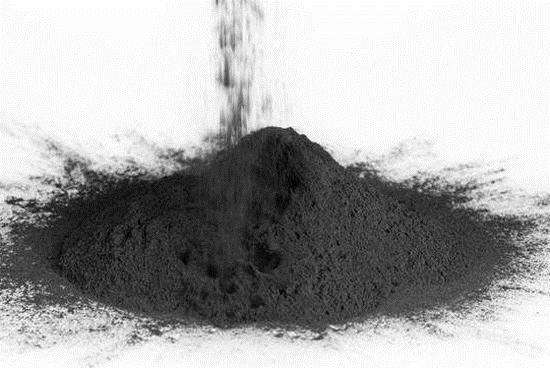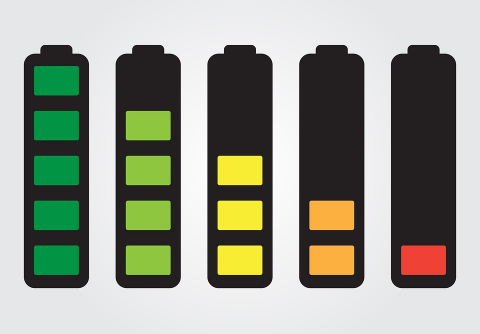Dog Ate Lithium Battery-Care for Pets and Batteries
Dec 19, 2019 Pageview:3547
In our modern life today, batteries are everywhere and used for almost any application. From the button-sized batteries to the large D cells, batteries are found and used in every form, including the remote controls we use, our smoke detectors, portable CD players, Christmas or holiday decorations, watches, toys, and even pet toys. Batteries are so conventional these days that we can hardly think about it before our dog or pets chew up our remote control and swallow a battery. So the worry of what a cell can do to a dog is valid, because you may never know when the knowledge will be useful to you. No one knows when their canine friend is going to do something –funny and disturbing.
What if your pet chews batteries?
To extend the life of battery cells, most battery makers add potassium hydroxide to their products, one of the reasons why is because it reduces corrosion. These batteries are generally called alkaline or lithium. However, potassium hydroxide is a caustic or corrosive agent that can cause ulcers as well as burns in the oral cavity of any human or pet. Dogs are the most affected as they puncture the battery case while chewing them. When the battery is chewed and swallowed, or if the battery case is broken as a result of the chewing, there can be a leak. This can result in burns internally.
This is especially on the tongue, the esophagus, and skin. Once your pet ingests a battery, quickly give it milk to drink, then find your way to a vet. The essence of the milk is to ensure the corrosive effect of the battery is stopped, or at the very least, reduced before you reach your vet.
Can lithium battery kill a dog?
Most pet owners should be aware of the risk of batteries, either lithium or alkaline batteries on their dogs and cats.
Any chewing or swallowing of lithium batteries are hazardous and dangerous to the health of your dog, and no one knows the extent of the damage it can do to your pet.
So answering if lithium batteries can kill a dog is tricky to answer, since the content of the battery is risky to the health of the dog, but the dog may not chew it to puncture the battery.
However, it is pertinent to note for all pet owners that all batteries pose a serious risk to their dogs and pets generally. And today, the growing popularity of button cells, especially lithium batteries, has even added to this threat. These button batteries are often smaller than a penny and look very shiny so that they can be attractive to curious animals.
If the dog chews the battery and punctures it, the chemical in it can cause serious burns and damages to the esophagus as well as other vital organs of the dog around the neck between 15 and 30 minutes after the dog ingests it. And like you may have guessed, these injuries are often serious and can be fatal.
Although the lithium disc batteries do not contain corrosive compounds, if they get into the system of your pet, their esophagus becomes even more alkaline due to the cathode side and acidic because of the anode side as current flows through the battery. This can result in serious tissue damage. A 3-volt battery may cause significant esophageal necrosis just within 15 minutes of contact.
What if a dog ate lithium batteries?
The regular Household lithium batteries we use may contain potassium or sodium hydroxide. If the battery is punctured and comes into contact with various tissues in the system of your pet, liquefaction necrosis (also known as cell death) occurs, which leads to deeply penetrating ulcers.
Lithium disc batteries may be excreted intact along with the feces of the pet. Alkaline or lithium batteries can be damaged while the pet chews them, thereby exposing the pets to stomach acid, causing further damage in the pet due to concentration of battery contents in the system of the pet, and causing heavy metal poisoning. The battery can also get lodged or stuck in the gastrointestinal tract of the pet.
So if your dog or pet ate a battery, what happens next?
Now that your dog has eaten a battery, what you do next depends on a variety of factors. These may include the type of battery your dog ingested, and how long ago he ingested it.
However, you need to get your dog to a vet immediately. But not before you give him some milk to drink. The milk will stop or reduce the effect of the corrosion of the battery before you reach your veterinarian.
Your veterinarian will make some assessments, including the location of the battery in the dog's gastrointestinal tract. If there are any battery found in your dog's esophageal area, they may need to be removed quickly through endoscopy or surgery.
However, if button cells or some other batteries get into your dog's stomach, the actions to be taken are different. Your veterinarian is likely to consider closely monitoring the dog. Hopefully, the battery will be passed out along with the feces of the dog or pet.
Meanwhile, the dog may be given supportive care and medication in other to relieve the various symptoms the battery ingestion has caused and also to prevent further damage.
The doctor may also add some fiber to the dog's food to safely direct the battery into the dog's gastrointestinal tract.
How do you protect lithium battery and your dog?
Although all batteries are dangerous, those small, disc-shaped batteries can stick to the system of the dog or pet and burn a hole in the pets’ esophagus or stomach, causing several punctures. This makes those small batteries even more dangerous than the AA, AAA, or the 9-volt batteries, all of which are also dangerous if swallowed by pets.
To avoid the heartbreak of having your dog swallow a battery, its best to keep your batteries out of reach of your pet.
Keep your remote controls, or toys, and other items that require batteries out of reach of the pets. You should also explain the dangers to your kids, so they do not leave battery containing objects or the batteries itself around the reach of the pets.
- Prev Article: Lithium Battery Shortage-Definition, Demand and Solution
- Next Article: Cold Weather Batteries Lithium-Work And Care
Leave Message
Hottest Categories
-
Hottest Industry News
-
Latest Industry News
















